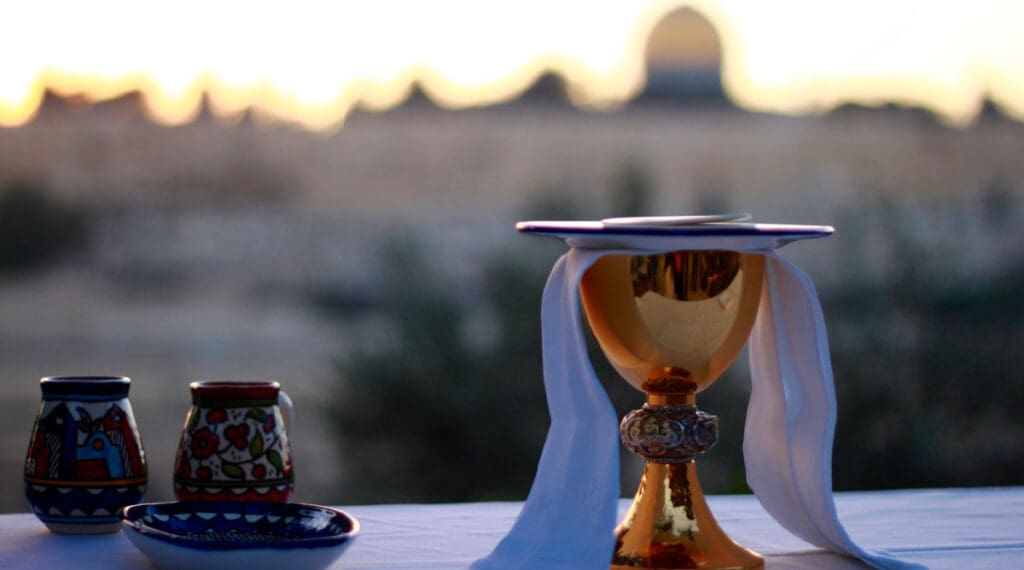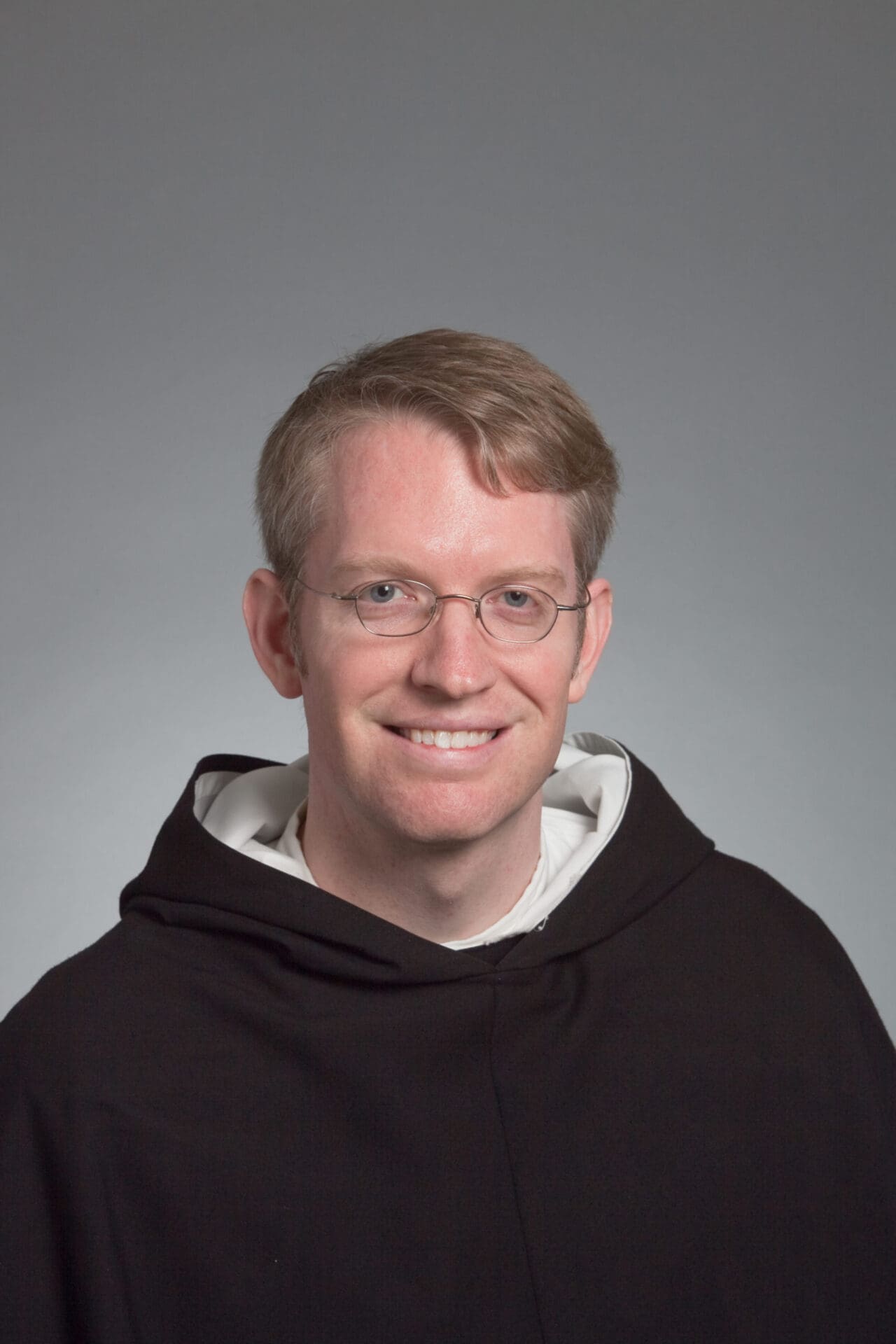Editor’s note: This is part 23 of a series, “The Kingdom of Grace.” Part 22 can be found here.
On the pathways of metanoia, the Church sets before us many ways to grow in the life of grace: prayer, meditation, silence, the Rosary, lectio divina, spiritual reading, works of love in daily life, and many more. All such practices are good and have their place in the spiritual life, but one stands out from them all. One alone is the true center for us all. The Eucharist is “the source and summit of the Christian life” (CCC 1324). How shall we understand this teaching of the Church?
The simple truth is that the Father loves us. In his great love for us he has poured out all the blessings of nature – the whole world is a gift of God. Yet, it was not enough for God to create all of nature. He also created human beings in his very image. He loved us further still by endowing human beings from the beginning with the gift of grace. Even more, when the first human beings fell from grace by their sin, God loved us all further still by sending his eternal Son into the world to die on the cross for us. After rising from the dead, the Lord Jesus breathed upon us the Spirit of Love he shares with the Father (Jn. 20:22). The plan of God all along has been to show us his excessive love. The point of doing so is for us to come know his Love. For the more we know his Love, the more we shall really live his Life.
The Lord Jesus instituted the Eucharist so that our lives might be totally imbued with his Love. The purpose of giving us the Eucharist was for all future generations of people, regardless of their time and place, to have a way to participate personally in his sacrifice – to join in the great act of love by which Jesus Christ offers himself to the Father. We do so, we participate or join in Christ’s own act of sacrifice, by going to Mass or the Divine Liturgy. We just need to go down to St. Leo’s to catch the 8:30 Mass, and we are actually with Christ himself in his own act of offering pure worship to the Father. The celebration of the Eucharist is his sacrifice taking place in our midst. More on the Eucharist as a sacrifice in a later article.
In a previous article on The God of Grace, we said that grace is primarily God’s gift of himself to us. Grace, in its primary sense, is God saying, “Here, have Me.” God gives himself to us first of all in baptism, for through that sacrament we become The Temple of the Trinity. Yet, God gives himself to us in every holy communion too. For in every holy communion, Jesus Christ gives himself to us completely—body, blood, soul, and divinity. The love of God is excessive indeed. More on the Eucharist as a sacrament in a later article.
When the Lord Jesus instituted the Eucharist, his intention was for us to organize our hearts around the Eucharist. Though our weeks might be busy and our schedules might be full, the real reason to live is on Sunday. The real reason to live is the Eucharist. For what could be greater than the Eucharist? A thousand other words or acts might feel better on the natural level. A conversation with a friend, a gentle stroll through the outdoors, or just relaxing at home might feel better than going to Mass or Divine Liturgy, but in truth there is nothing on earth greater than the Eucharist. There is no greater Love in our midst.
Though our weeks might be busy and our schedules might be full, the real reason to live is on Sunday. The real reason to live is the Eucharist.
We sometimes hear of the “Sunday obligation.” To go to Mass or the Divine Liturgy on Sunday is indeed an obligation, but those who understand in the depths of their hearts what the Eucharist really is scarcely feel it as an obligation. Rather, the Eucharist is our joy and our all. We want to go. For the Eucharist is the true fountain of Life. Innumerable graces flow from the Eucharist into our souls, and innumerable graces flow into our world. For the Eucharist is Jesus Christ himself, and “from his fullness we have all received grace upon grace” (Jn. 1:16).
Saint Elizabeth of the Trinity is a good example of someone whose heart was organized around the Eucharist. The point might come as a surprise, since we normally think of her as a great saint of the interior life. True, Elizabeth was acutely aware of the indwelling Trinity. She was given to selfless gazing upon God and aimed to be wholly surrendered to his action in her soul. But she also knew well how her interior life thrived in connection with the Eucharist. For certain crucial moments of grace in her life were woven together with the Eucharist.
She made her first holy communion at the age of nine, and, following a local custom, she immediately afterwards visited the local Carmelite monastery. After learning her name was Elizabeth, the prioress said the name meant “happy little house of God.” At that moment, Elizabeth received a light, and something of the truth of who she was dawned on her. She awoke in a new way to God dwelling in her soul. The illumination was a fruit of her first holy communion. A few years later, at the age of fourteen, it was during her thanksgiving after holy communion that she received the inspiration to vow herself to perpetual virginity. A few years later still, she did something unusual for her day. She obtained permission to receive holy communion for eight days in a row during the octave of Corpus Christi. When it was over, she felt yanked from the Eucharist. She told of the experience in a poem, and summarized her whole attitude towards the Eucharist: “I want this heavenly bread.”
Father James Dominic Brent, O.P. is a Dominican Friar who lives and teaches at the Dominican House of Studies in Washington, DC. Several of his homilies, spiritual conferences, interviews, and radio spots can be found on his personal Soundcloud site. He frequently lectures for the Thomistic Institute and appears on Aquinas 101.
Image courtesy of Unsplash.




